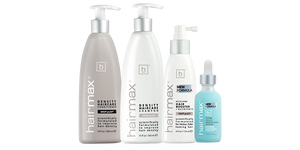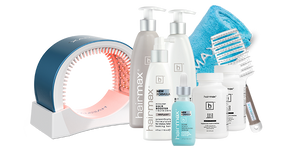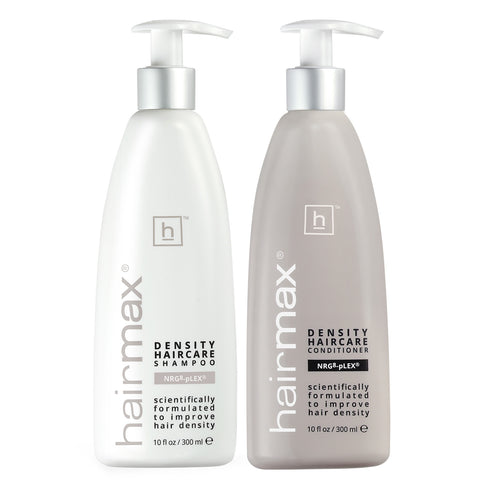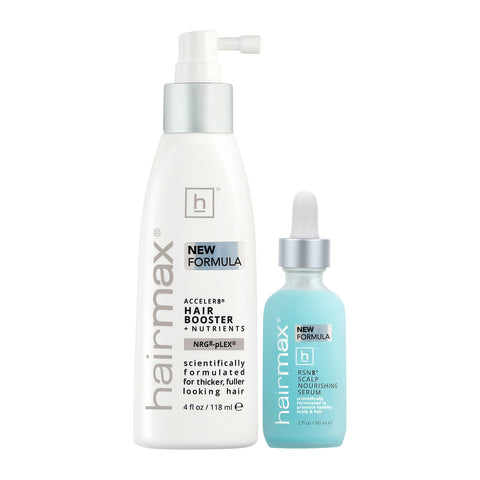While you may check the list of ingredients on your favorite food products, you may not think to do so for your hair care. The ingredients in your shampoo, conditioner, and other hair products aren't always as safe as you might assume. We recommend that you watch out for these 10 hazardous culprits that may lurk in your shower.
Sulfates
Sodium lauryl sulfate and sodium laureth sulfate are both commonly found in hair care products. These are foaming agents that can make the shampoo seem like it's really lathering up and doing a good job. Unfortunately, when the sulfates wash away, they take your hair's natural oils and color along. This can leave you with dry hair and scalp and mild skin irritation.
Triclosan
Triclosan is a suspected carcinogen that's banned from antibacterial soaps. Yet, you can still find it in shampoos, deodorants, and even toothpaste. This ingredient is used to prevent bacterial growth in shampoo, but it can actually cause hormone disruptions leading to infertility, immune system problems, depression, and fetal harm. This ingredient may also contribute to the development of germs that are resistant to antibiotics.
Polyethylene Glycols
Polyethylene glycols (PEGs) are used to thicken some hair care products. However, PEGs strip away your hair's natural moisture, so the product then needs yet another ingredient to counteract this effect. Further, PEGs are often contaminated with ethylene oxide, which is a known carcinogen. PEGs may also interfere with human development. If applied to broken skin, this ingredient can even cause systemic toxicity.
Mineral Oil
Mineral oil sounds like it would be great for your hair, but it contains high levels of polyaromatic hydrocarbons (PAHs), which may be linked to nonmelanoma skin cancer. Though mineral oil is effective for smoothing and detangling hair, it tends to build up on the scalp, which can weigh down your strands making them look limp and thin. This is especially problematic if you have thinning hair. If your strands are weighed down from using this kind of product, we suggest trying our Density ACCELER8 Hair Booster to restore volume.
Benzene
Connected to leukemia, cancers of the blood cells, anemia, and immune system toxicity, benzene is something you don't want to have a lot of contact with. For expectant mothers, benzene may even disrupt the development of the fetus. Benzene is used in shampoos to help treat dandruff and dry scalp, but it's probably not worth the risk. Consider a natural dandruff treatment like tea tree oil or coconut oil instead.
Parabens
Parabens are used as a preservative in shampoos to extend their shelf life. However, they can irritate the skin, disrupt your hormone balance, and impact your reproductive health. Parabens aren't identified as such on the bottle because there are several different types. All end with "paraben," however, so you can check the label for ingredients like ethylparaben, butylparaben, and methylparaben.
Short-Chain Alcohols
On the bottle, short-chain alcohols are typically listed as propanol or isopropyl alcohol. These substances help hair products dry quickly, but they also wick moisture away from your strands, leaving them dry and prone to damage. It's important to distinguish these from long-chain alcohols, however. Long-chain alcohols like lauryl alcohol, stearyl alcohol, myristyl alcohol, and cetyl alcohol hydrate the hair and help it stay smooth and soft.
Formaldehyde
Formaldehyde is a well-known preservative. Though you probably wouldn't pick this ingredient for your beauty routine intentionally, you may be shocked at how many products actually contain it. Formaldehyde is often identified on the label as quaternium-15. This ingredient is a known carcinogen that you can absorb through the scalp. It can also cause headaches, dizziness, eye problems, nausea, vomiting, rash, and chest pains.
Dimethicone
At first, dimethicone seems like a helpful ingredient. It creates smooth, soft hair that you can easily run your fingers through. However, it can build up at the roots of your hair when used regularly. This prevents moisture from getting to your scalp and keeps natural oils from flowing onto your hair. If you've been using a product with dimethicone, you may need to counter it with our nourishing serumthat can exfoliate and deeply hydrate your scalp to help undo some of the damage.
Diethanolamine
As a foaming agent, the ingredient diethanolamine is effective at helping oil-soluble and water-soluble ingredients mix together. However, this ingredient has been linked to cancer in animals and is known to cause skin and eye irritation for some people. Some studies have also shown that diethanolamine can cause precancerous changes in the thyroid and skin when used in high doses.
Checking the label on your hair care products can give you valuable information about what you're using on your body. We recommend choosing natural, healthy ingredients as much as possible for naturally healthy hair.











